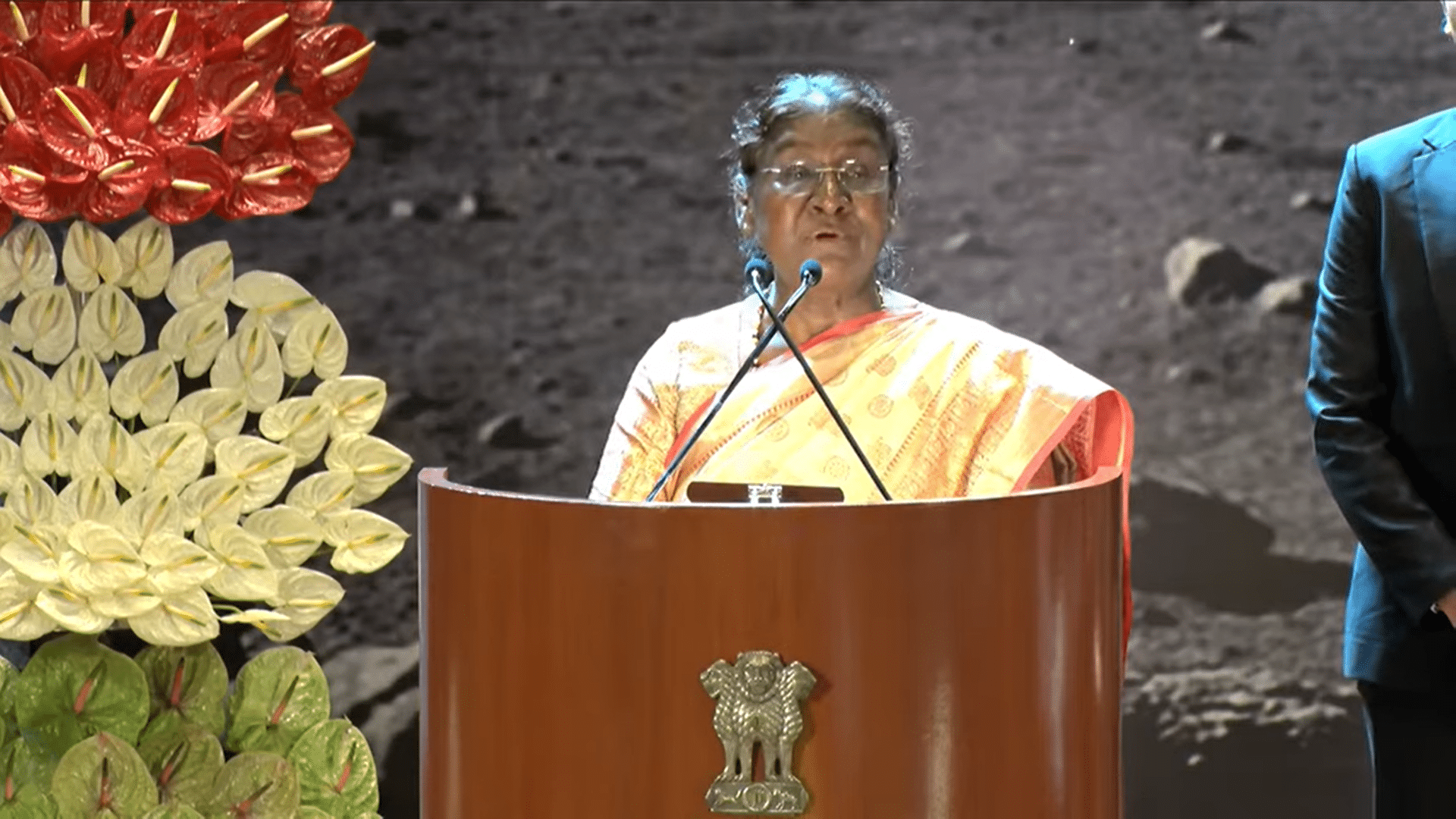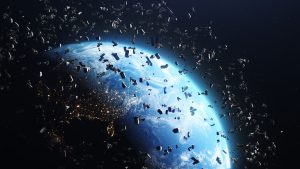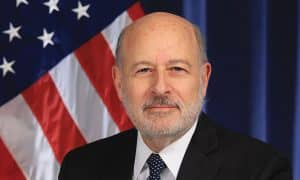On the inaugural National Space Day, President Draupadi Murmu delivered an inspirational speech celebrating India’s achievements in highlighting the successful landing of the Vikram Lander near the Moon’s southern polar region as a testament to India’s technological prowess and scientific advancements.
ISRO’s Vital Contributions
ISRO’s remarkable strides in space exploration, as recent as evidence of Chandrayaan-3’s initial scientific findings have solidified the long-held theory that the moon was a molten rock ocean shortly after its creation. This conclusion is based on 23 chemical analyses of lunar soil conducted by the Pragyan rover during its two-week mission near the moon’s South Pole.
The President lauded ISRO findings saying,” ISRO has achieved tremendous things including recently uncovering evidence of a former magma ocean near the Moon’s South Pole by the Chandrayaan-3’s Pragyan Rover strengthening the belief that initially the Moon was completely an ocean of magma. It gradually cooled down and moved towards its present form. In scientific language, this is called the Lunar Magma Ocean Hypothesis.”
Private Sector Involvement & International Collaboration
The President also discussed the significant growth in India’s space program, driven by the involvement of the private sector. She highlighted achievements like Agnikul’s launch of a single-piece 3D printed semi-cryogenic engine-powered rocket, marking a new milestone in space technology. Additionally, she noted that India’s space program has strengthened international relations, as evidenced by the successful launch of the South Asia Satellite GSAT-9 in 2017.
“The opening up of the space sector to the private sector has led to a rapid increase in the number of start-ups,” she said. “The space sector is also a good medium to increase trust and partnership in international relations.”
Addressing the Space Debris Challenge
Space Debris, mostly consisting of discarded spacecraft parts and other objects, poses a serious threat to operational satellites. To ensure the sustainability of space exploration, ISRO is implementing measures to address the challenge.
The President addressed this issue, stating, “Space debris can create problems for space missions. To ensure that space research activities continue uninterrupted, the “ISRO System for Safe & Sustainable Operations Management” facility is being operated. This is a commendable step. I am also happy to know that India is moving ahead to make all its space missions debris-free by the year 2030.”
Beyond Space Exploration and Future Goals
The President emphasized that ISRO’s contributions extend beyond space exploration, playing a crucial role in India’s social and economic development. “ISRO has been an invaluable contributor to the social and economic development of the nation. India’s space mission aims to be self-reliant in the international sector,” she said. These endeavours aim to contribute to the nation’s social, economic, and scientific progress.
She highlighted the impact of the space sector on various fields, including health, medicine, transportation, security, energy, environment, and information technology.









